Anima Mundi, Beauty News
9 Deities of Medicine, Healing + Health Around the World
“We know that our ancestors believed in varying degrees of pantheism.
Nearly all peoples had their pantheons of gods and goddesses.”
— John H. Raach, Ph.D., M.D.
Historically, figures like Apollo, Asclepius, Artemis, Eileithyia, Hera, Hygieia, Iaso, and Panacea – all Ancient Greek deities linked to health, wellness, and the medicinal arts – have gained renowned acknowledgment in the realm of health-related divinity.
The foundations of many early health and illness ideologies can be traced back to Greek mythology, with its array of immortal deities whose narratives, rich in imaginative mythology, held sway over ancient Greek beliefs and overall health conditions (Source: Hektoen International). Deities who ranged from water and mountain nymphs to muses, embodied human forms and intricate personalities, and they inspired a wealth of complex rituals, prayers, and sacrifices in their honor or pacification.
Among the most emblematic symbols is the Aesculapian wand, or the totem of Medicine – a single serpent coiled around an upright rod, said to have been observable in the Ophiuchus constellation. Serpents, revered by ancient and some contemporary civilizations worldwide, symbolize birth, rebirth, and fertility. This universal health emblem of the serpent can be seen today in the logos of hospitals, research institutes, councils, emergency services, military medical corps, and even on the World Health Organization flag.
However, what about the ancient societies of the East, the indigenous Black and brown communities, and other globally significant ethnic groups? Their mythological figures, often overshadowed by prevalent European narratives, deserve their time in the limelight. Hence, our focus shifts today to tales from cultures across Africa, Asia, Latin America, the Caribbean, and the indigenous tribes of North America, passing down generations of medicinal deities.
As the Indian author-activist Arundhati Roy teaches us:
There’s really no such thing as the ‘voiceless’. There are only the deliberately silenced, or the preferably unheard.
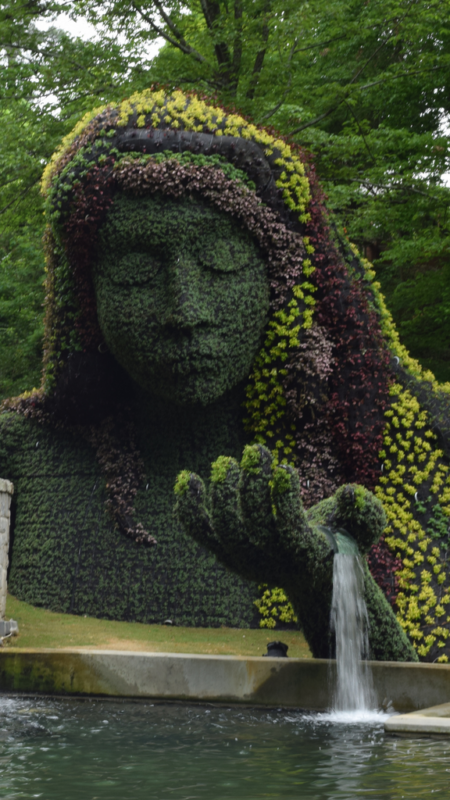
Historically, those who believe in deities (plural) have been ridiculed, tortured, or otherwise punished for their spiritual practices, not just in their time, but for generations. Gods and goddesses of medicine, healing and health, we hear you now! We honor and wish to know more about your mighty legacies.
Shining a light on non-Western deities allows us to broaden our perspective and understanding of how people across the planet have regarded their sacred gods and goddesses for better health and healing since the beginning of human history. Below are spirits and otherworldly supreme beings from around the globe who have impacted the beliefs, practices, and physicians of civilizations throughout the ages. Likewise, we’ve woven some of our favorite herbs ethically sourced from the Global South throughout this list to illuminate their potent curative abilities in the context of our internationally-minded exploration.
For more about [people of the] “Global Majority” (PGM) and other inclusive language, see here.

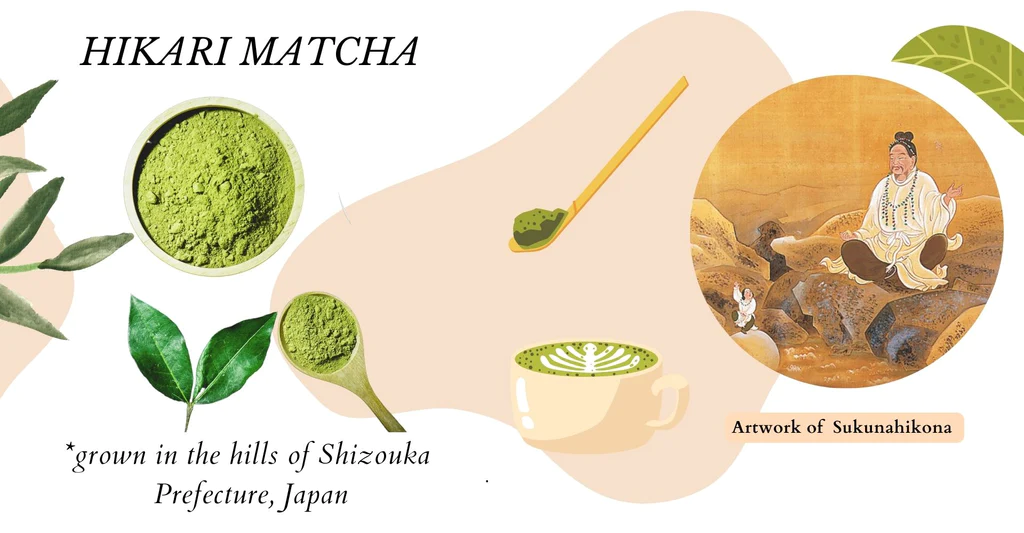
Asia
- Haoma (Iran)
Zoroastrian god of health + guardian of mountains
In Zoroastrianism and Persian mythology, Haoma is a divine plant with origins in Indo-Iranian religion. People pressed and used haoma for its medicinal juices, praying to this god of the harvest, strength, vitality, and health, especially for strong sons. Legend has it that Zoroaster’s father mixed the potent plant with milk, and then drank it with his wife prior to conceiving their son. The elevated states created when the plant was pounded supposedly enhanced connections to higher powers and planes of consciousness.
- Sukunahikona (Japan)
Shinto “kami” of medicine, hot springs + healing
This “Small Man of Renown” is known by many epithets in Japanese mythology. A dwarf deity believed to have played a crucial role in building the world, protecting animals, and preventing diseases, he’s also associated with brewing sake. Some say when it was revealed that Sukunahikona’s father was a supreme Shinto god, Okuninushi made him one of his key advisors. Sukunahikona then taught Okuninushi how to heal cattle and humans, and he showed him the therapeutic benefits of hot springs. According to legend, he left Japan forever (propelled by a stalk of millet into a mysterious world) when he felt his purpose was fulfilled. He is credited for inspiring countless folktales about fairies and other diminutive spirits.
- Dhanvantari (India)
Hindu god of health, Ayurvedic medicine deity + physician of the gods
Ayurveda, India’s ancient medical system, “in its entirety is essentially linked to Dhanwantari who is considered as God of Hindu Medicine” (Source: NIH). This mythical deity was believed to have been born with one hand of Ayurveda, and the other with ambrosia. His legendary lineage of descendants is said to include Divodasa (also known as Dhanwantari), who specialized in Ayurveda’s surgical branch, and Sushruta, who is rumored to have learned both the science and art of surgery from Divodasa.


Latin America + The Caribbean
- Atabey (The Caribbean)
Ancestral Taíno “zemi” of fertility + creation
In the ancestral Taíno religion of the indigenous Caribbean people who once inhabited present-day Cuba, Dominican Republic, Jamaica, Puerto Rico, the Bahamas and neighboring countries, zemi (spirit) worship centered on two supreme beings. This formidable mother figure was one of these two, and is said to have birthed herself, twin sons, and the world without intercourse. She embodies nature, and specifically the sacred waters. To ensure safe childbirth, Taíno women prayed to this zemi, and her depiction in a cross-legged, frog-form birthing position was favored by Taíno midwives. An enduring symbol of fertility, her powers also extend to music, beauty, and creation itself.
- Patecatl (Mexico)
Aztec god of fertility + healing, discoverer of peyote
While it may seem counterintuitive that the so-called god of drunkenness was also associated with magical plants, medicinal roots and herbs, healing and fertility, the Father of the Octli Deities is also known as the Lord of the Land of Medicines. He is credited with discovering and giving the Aztecs peyote, an essential curative medicine, and pulque, one of the maguey plant’s many gifts and the world’s oldest fermented alcoholic beverage (a.k.a. the “Drink of the Gods”). The hallucinogenic cactus known as peyote, hikuri and other sacred monikers, has been in existence for over 5,000 years. Its use as a psychedelic substance in pre-Columbian Mesoamerican rituals of the past and among indigenous shamans of today has solidified it as one of the most sought after and beneficial plants in the world.


North America
- Kumugwe (Pacific Northwest)
Nuxalk underwater god who heals the sick + injured
For many Pacific Northwest peoples, Kumugwe represents health and wealth. He was believed to reside deep beneath the ocean floor, inhabiting a home whose hidden wealth was rumored to have caused the death of many mortals seeking his treasures, often in vain. Among the mythology of the Nuxalk and Kwakwaka’wakw indigenous nations, he is also revered by the name “Copper-Maker”. Claiming domain over the ebb and flow of the tides, his powers are said to include seeing into the future, bestowing strength upon those who win his favor, the effects of the sea weather, and healing the sick and injured.
- Angak (New Mexico)
Hopi kachina spirit who heals + protects
Originally from the Zuni Pueblo, members and mythology of the Hopi Tribe honor Angak (a male kachina spirit) in the form of rain dances, doll figures, and traditional cottonwood root carvings. This spirit’s primary goal is to protect and to heal, mainly through bringing flowers and rain to Hopi villages. In the present day areas of Arizona and New Mexico, Angak remains a popular figure in both ceremonies and folklore.


Africa
- Osanyin (Nigeria, Benin)
Yoruba “orisha” of herbal medicines
African therapeutic systems have long relied on rituals and ritual therapists to invoke the gods. Their abilities to promote social harmony and the holistic health of the community are rooted in ensuring the correct ritualistic acknowledgment of the powers possessed by these deities. Among the Yoruba of Nigeria, phytomedicines are believed to be the provenance of Osanyin, supervisor of plant collection, preparation, and implementation. Afro-Cuban practices call this orisha Osain. Many throughout the African diaspora credit him with the powerful knowledge of all herbs, making him capable of curing any type of ailment. It is also said that Osanyin’s mother was his first patient, even paying him a fee and declaring his life’s work in medicine would only produce results for those able to pay for his services. Conversely, curses are only believed to be effective with the hot-tempered Osanyin’s approval.
- Sonzwaphi (South Africa)
Zulu goddess of healing
Outside of the Zulu nation, whose primary way to preserve Sonzwaphi’s legacy is through oral histories, it’s exceptionally difficult to uncover the origin stories of this healing deity. What is more accessible in modern records is the overall importance of ancestor worship in the Zulu religion. Residing in the spirit world “below”, ancestors connect with the living in the form of dreams, animals, or illnesses. It is said that diviners known as sangoma first arrive in the form of sickness, and then help to initiate a healing process for the ancestors, which includes learning how to interpret dreams and how to use medicinal herbs.























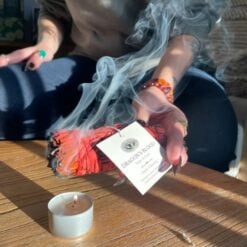







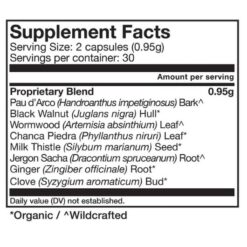


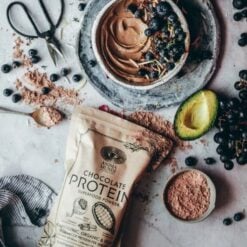

 Beauty Products
Beauty Products By Skintype
By Skintype Brands A-Z
Brands A-Z Wellness
Wellness Health / Nutrition
Health / Nutrition